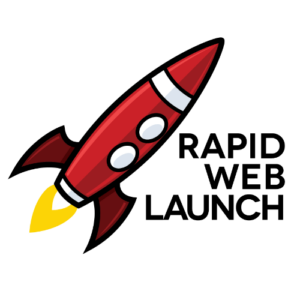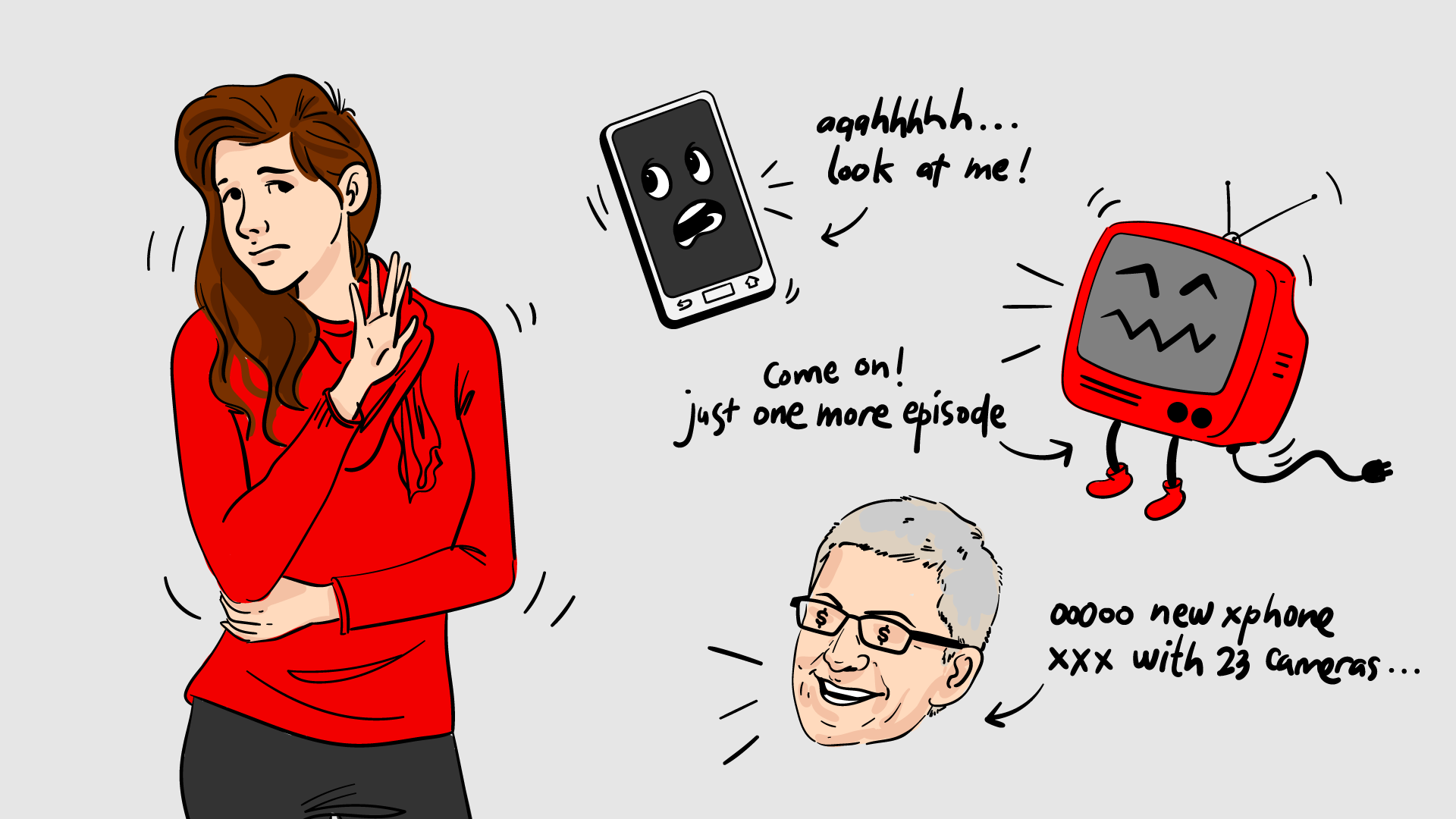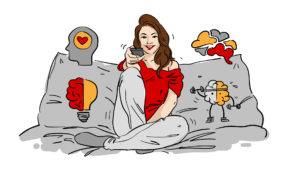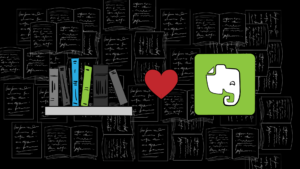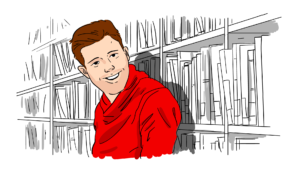Improving your focus and concentration in an increasingly distracting world feels like it should be an Olympic sport.
Everywhere you look, someone or something is greedily fighting for your attention.
Let’s play through a little scenario…
You proceed to spend the next 20 mins swiping through each one from the comfort of your warm bed.
Later, as you drive down the highway on your morning commute, you get condescending reminders from government road signs that “distracted driving” is killing thousands of people every year.
Yet, just a few hundred meters later, you’re blindsided by gigantic LED-powered billboards bragging about the fast-acting relief of the latest opioid-powered OTC drug.
The irony seems to be completely lost on the people who make these decisions. Or perhaps they’re simply more interested in making money than saving lives. Go figure.
After grabbing your morning coffee and bagel, you settle into your desk and bust out your laptop, ready to put in a productive day of work.
Overwhelmed by the dozens of emails waiting for your reply, you proceed to spend the next 2 hours watching last nights basketball highlights, scrolling through your ex’s Facebook photos, and giggling your way through the best memes of the week on Reddit. With a dash of social justice outrage via your ol’ pal Twitter.
Following a solid day of water-cooler talk, “team-building” meetings and being thankful that you at least have a window to stare out of, you manage to get that quarterly report sent to your boss just before the clock strikes 5PM. TGIF!
On your long commute home, as you snail your way through an additional 40 mins of unexpected traffic, your favorite history podcast is repeatedly interrupted by ads from some financial startup telling you you’re not taking your finances seriously enough. And that it’s time to start investing. With them, of course.
As you finally settle into your couch for the evening, with a plate of General Tao chicken on your lap and a glass of wine in hand, you’re confronted by the most daunting decision of the day.
“Lets’ see… I’m still a few seasons behind on my fav Netflix show… but I haven’t even started that new 4-hour epic on Amazon Prime yet… plus they just brought back my favorite 90’s show on Hulu… but then there’s also that new Disney+ streaming service everyone at work is talking about… oh I forgot that the BigTallBasketPlayers are playing tonight… I wonder if SuperPopularYoutuber has a new video…”
Finally, after taking 45 mins to pick something to watch, you snuggle up on the couch with your best hoodie and pair of sweatpants, lay your head down on a pillow, pull out your phone, and begin to scroll through Instagram while your TV drones on in the background.

Sound a little too real?
For many, it is.
And for a growing number of people, it’s something they desperately want to change.
I know I did.
In this guide you’ll find tips and tricks that I used to improve my focus and concentration. Something I had to do if I was going to accomplish my ambitious goal of building a web design business and achieving financial independence.
It wasn’t an overnight project. This took years of gradual but consistent effort.
You’ll find that your focus and concentration is closely linked to your habits. Good habits will improve your focus and concentration. Bad habits will kill it.
Patience is key here. Don’t think that you’re gonna go from couch-bum to Elon Musk overnight. Track your progress and the little wins you make each day.
Before you know it, those little wins will turn into big ones.
And keep in mind that everyone is different. We each have our own challenges, weaknesses, privileges and goals.
But I do believe that there are universal truths. And that this guide can serve as a powerful framework for anyone who is serious about being more meaningful with their time and accomplishing the ambitious goals that have been rattling around in their head for years.
Ready? Let’s get to it.
Take a step back and analyze the situation
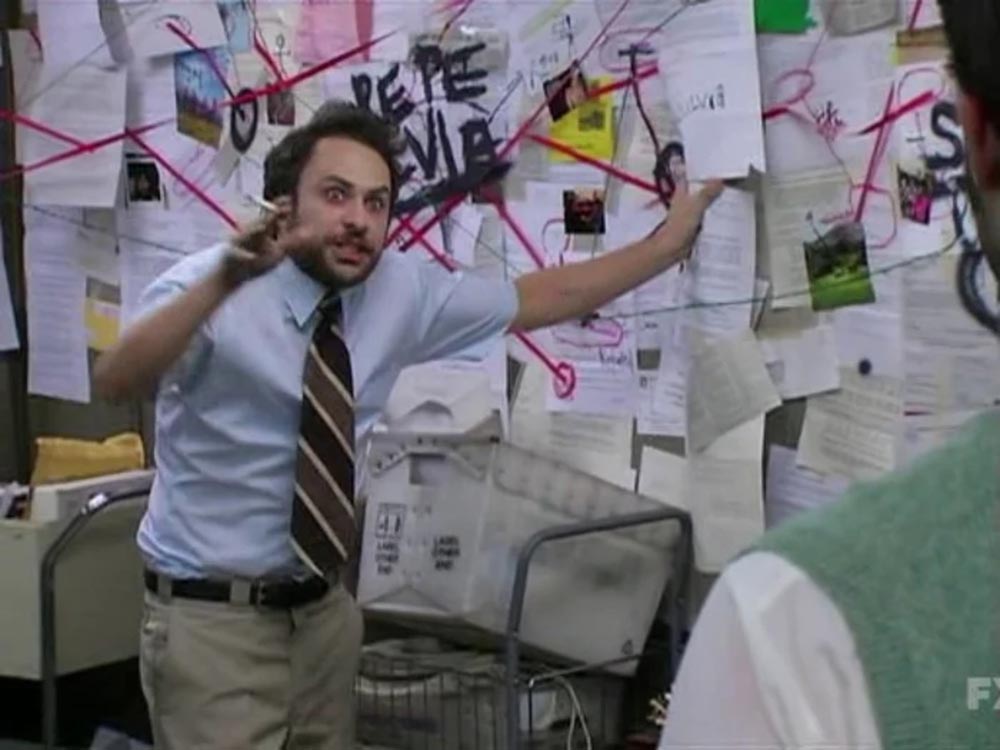
“Until you make the unconscious conscious, it will direct your life and you will call it fate.” – Carl Jung (Psychologist)
Before you try to solve a problem, you need to know exactly what the problem is.
The first stage of the process is to take a step back and do a self-examination.
Identify your distractions, temptations and time-suckers
What’s that old saying? The first step is always the hardest?
The first step of the Alcoholics Anonymous program is Honesty. Being honest with yourself. Recognizing that this man-made substance has an immense power over you and that you are no longer in control.
Is it extreme to compare our modern-day distractions to alcoholism?
I don’t believe so. Not in the slightest.
This world is designed to suck the soul out of you. To numb you into submission. To lure you into self-destructive habits that damage you and the people closest to you.
Here are a few fun not-so-fun facts:
- People are now watching 6 hours of TV a day
- They’re spending 12 hours a day consuming media in general
- The average person will spend 2,943 hours of their life just deciding what to watch
- 66% of Americans are on prescription drugs, millions of those are addicted to them
- 1 in 8 Americans is an alcoholic
- More than 2 billion people are overweight, 650 million obese
- 35% of all internet traffic is pornographic
- 45% of teens say they are online ‘almost constantly’ (which means its actually way more)
There are many forms of addiction and substance abuse. And we’re gonna touch on a few of them here.
So, how do you identify what has control over you?
Monitor your habits and track how you’re spending your time
Awareness surrounding these types of addictions is increasing. More and more fingers are being pointed at the tech companies who helped create these habits.
With public criticism mounting, these companies are being forced to at least appear like they’re taking steps to address them.
All of the major phone makers now have built in monitoring features that help you get a clear picture of exactly how you’re spending your time while using your devices.
And content platforms like YouTube and Nintendo now let you know when they think it’s time to take a break and see what’s happening outdoors.
How effective these adjustments will be remains to be seen. These companies don’t exactly have much incentive to help you spend less time using their platforms.
Most people will simply ignore the weekly report from Apple that says they’re spending 20 hours/week swiping through Tinder. And those gentle “Are you still watching?” reminders from Netflix? They’ll be swiftly dismissed.
But not by you. You’re too self-aware to do that.
Use tools like these to track how you’re spending your time. You can even install some extensions in your internet browser to see exactly which websites you’re most hooked on.
And for habits and activities that don’t involve a screen of any kind, and can’t be automated, use a daily journal to make a note of what you did that day. It doesn’t have to be some “Dear Diary” silliness. Just list the activity and the time spent doing it. And be honest with yourself!
But improving your focus and concentration involves more than simply quantifying the amount of time you waste…
Stop and think about how you feel after engaging in an activity
There’s a lot of talk about being “more mindful” these days. With a lot of vague and confusing definitions of the term.
When it comes to identifying what has a hold over your time and energy, I condensed it into something really simple.
After engaging in an activity, any activity, take a few minutes to analyze how you feel.
Avoid the temptation to preemptively label an activity as “good” or “bad” before going into it. Keep a clear, neutral headspace.
For example, don’t assume that all TV watching is bad, and that you’re going to feel worse after watching a movie no matter what. Instead, start watching the movie with an open mind and zero judgement.
Then, once you’ve finished watching the movie, ask yourself questions like:
- How do I feel right now? (Be as specific as possible. Not just, “same”, “better” or “worse”. Make liberal use of adjectives. “Refreshed”, “sad”, “angry”, “intrigued”, “satisfied”, “disturbed”, etc…)
- Why do I feel this way? (It can be surprisingly simple to find a specific answer. If you’re feeling “disturbed”, for example, you can continue asking yourself “why” until you connect that feeling to a specific scene in the movie, or perhaps the overall theme of the film.)
- What can I do differently next time? (Perhaps next time you can avoid movies with similar themes, or make a determination to avoid movies that have a certain content rating.)
This thought process is applicable to any type of activity. And its beauty is in its simplicity.
Just three simple questions to get to the bottom of the effects of your current habits.
Trust me, you’ll be surprised at just how much time you’re spending on activities you think are re-energizing, refreshing or, at the very least, entertaining you.
And that will give you the motivation you need to start cutting these bad habits out of your life.
But it’s still going to be a challenge. And you’ll need to tackle it with some very specific tactics.
Improve your focus by adding friction to bad habits

“The people with the best self control are typically the ones who need to use it the least.” – James Clear (author)
Think of habits as a neurological highway in your brain. If you want to avoid traveling down this highway, and finally quit a bad habit you’ve been struggling with for years, you’ll need to build as many roadblocks as you can.
The act of adding these roadblocks is what is referred to as “creating friction”.
Creating friction hinders your ability to instantly act on your cravings the moment they pop into your brain. It buys you time, allowing you to think about the direct consequences of the action you’re about to take.
You’ll have a much better chance at taking the first exit off that neurological highway that ends with a steep drop off a cliff.
Here are some easy ways to add friction to your bad habits:
Block websites on your computer
For all of the good the internet has done for us, it has also unequivocally been a harbinger of self-destruction.
With such a powerful tool at our fingertips, we often use it to engage in habits that are powerful in all the wrong ways.
Setting aside the discussion of the immensely negative effects of viewing immoral and disturbing types of content (that’s a topic for another day), we’ll focus on another extremely common problem.
The internet has become a massive time-suck for most people.
It’s just too easy to switch tabs from the blog post you’re supposed to be writing to browsing camper vans on Pinterest.
So what do you do?
Don’t just make it harder to waste time on the internet. Make it impossible.
- Download a free parental control software
- Setup the software to block all of the websites you find yourself wasting time on
- Give the password for the software to a friend
You don’t have to quit cold turkey on all of the websites you love all at once. You can take your time and do it gradually. This will increase your chances of breaking this habit long-term.
I started with my most obvious time-suckers, then fine-tuned it over the coming months.
Sometimes I found new websites that my brain tried to use as replacements for websites I had blocked. So I would block those as well.
Other times it became clear that I no longer needed to block certain websites. The appeal evaporated after a few months away from them. The neural pathway was broken.
Simplify your phone
You could argue that the smartphone has made a larger impact on society than even the internet itself. Mainly by making the internet so accessible in a whole variety of new ways.
But that also means those time-sucking habits can now fit comfortably in the palm of your hand. Everywhere. At all times.
I’ve written previously about how I simplified my phone and the impact it has had on my life. Here are the Cole’s Notes:
Delete unnecessary apps
Delete all nonessential apps from your phone. Only you can decide what is considered “nonessential”. It’s important to be honest with yourself.
When deciding whether you should keep or delete an app, think about:
- Why you have the app in the first place
- How often you use the app
- Whether you can continue using that app on a different device instead (such as your computer)
Some examples of apps that I personally found to be unnecessary:
- Social media apps: I’m very much a consumer, not a creator. Therefore, the desktop version suits me just fine. And it comes with a bonus, no ads!
- News apps: You don’t need to stay on top of the news every second of every day. You’ll drive yourself nuts. Catch up on the days most important news at the end of the day.
- Video streaming apps: I’m not subscribed to any video streaming services. For very clear reasons I’ve explained before. YouTube is the only one I still use, and I don’t need to have it on my phone.
Once you’ve identified your unnecessary apps, delete them!
Add friction to your must-have apps
Now that you’ve identified and removed your unnecessary apps, you should have a phone that holds only your must-have apps.
Now it’s time to add some friction to those.
You can add friction to your must-have phone apps by:
- Creating a folder and putting the app inside it
- Moving the app/folder out of the main screen and into one of the secondary ones (so you need to swipe to find it)
- Logging out of the app when you’re done using it, so you’ll need to login the next time you try to use it
- Using parental controls to restrict access to the app within a certain time frame
You can add 3-5 steps to opening your favorite app by incorporating most of these ideas. This will often create enough friction to dissuade you from finishing the process of opening the app.
Focus and concentration retained!
Block notifications
This is an easy one. Turn off all of your phone notifications.
99% of notifications are pointless and all of them are designed to steal your attention.
So if you’re gonna allow an app to notify you whenever it chooses to, you’d better make sure they’re worthy of such a special privilege.
The only apps I get notifications from are ones that promote good habits. Such as:
- Essential daily reminders
- Practicing Spanish
- Fitness and exercise
- Calls or texts (duh)
Use Parental Control features
This one is for my hardcore focus-ers out there.
Put your pride aside and use parental controls to further filter out all the nonsense.
On my iPhone, I’ve selected about 20 websites that I’m permitted to browse from my phone. Everything outside of that gets blocked.
Oh, and the App Store? Gone.
If I need to download or update any of my apps, I have to wait until the next time I see my friend. Who holds the 4-digit pin that will unlock the parental control.
I want my phone to work for me. Not the other way around. These settings and filters have completely changed my relationship with my phone.
My focus and concentration has never been stronger.
Improve your focus by removing friction from good habits
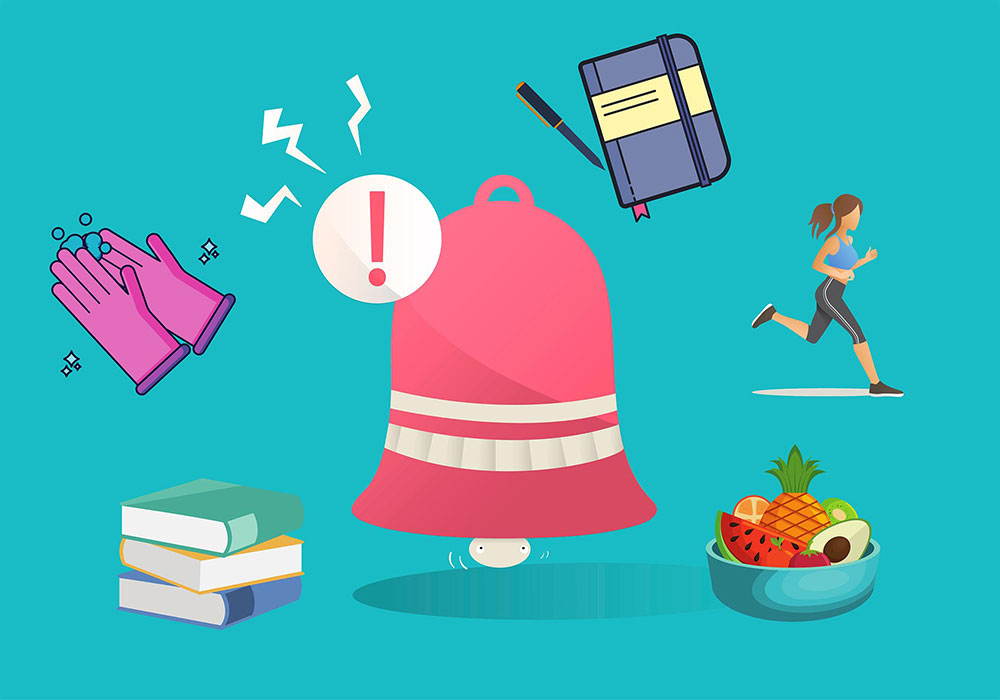
“What is immediately rewarded is repeated. What is immediately punished is avoided.” – The Cardinal Rule of Behavior Change
Reducing friction on good habits is the exact opposite of adding friction to bad habits. (not sure I really needed to explain that)
Rather than adding roadblocks to your neurological highway, we’re gonna take away potential roadblocks to make it easier to head down that path.
Good habits will improve your focus and concentration. They are the paths you want to head down.
Here are some ways you can remove these roadblocks, reduce friction and fly down that neural pathway. Full speed ahead!
Optimize your environment for focus and concentration
Your environment has a dramatic affect on your mood, energy and actions. It is full of triggers.
Whether those triggers are for good or bad habits is entirely up to you.
Here are some ways you can optimize your environment for improved focus and concentration.
Keep it clean and tidy
Clean environment = clean mind.
Many studies have shown the clear benefits of keeping your immediate environment clean and organized. It’s a major reason for the rise of minimalism.
But you need to keep more than your environment clean. You need to take care of yourself too.
That means starting each day the right way.
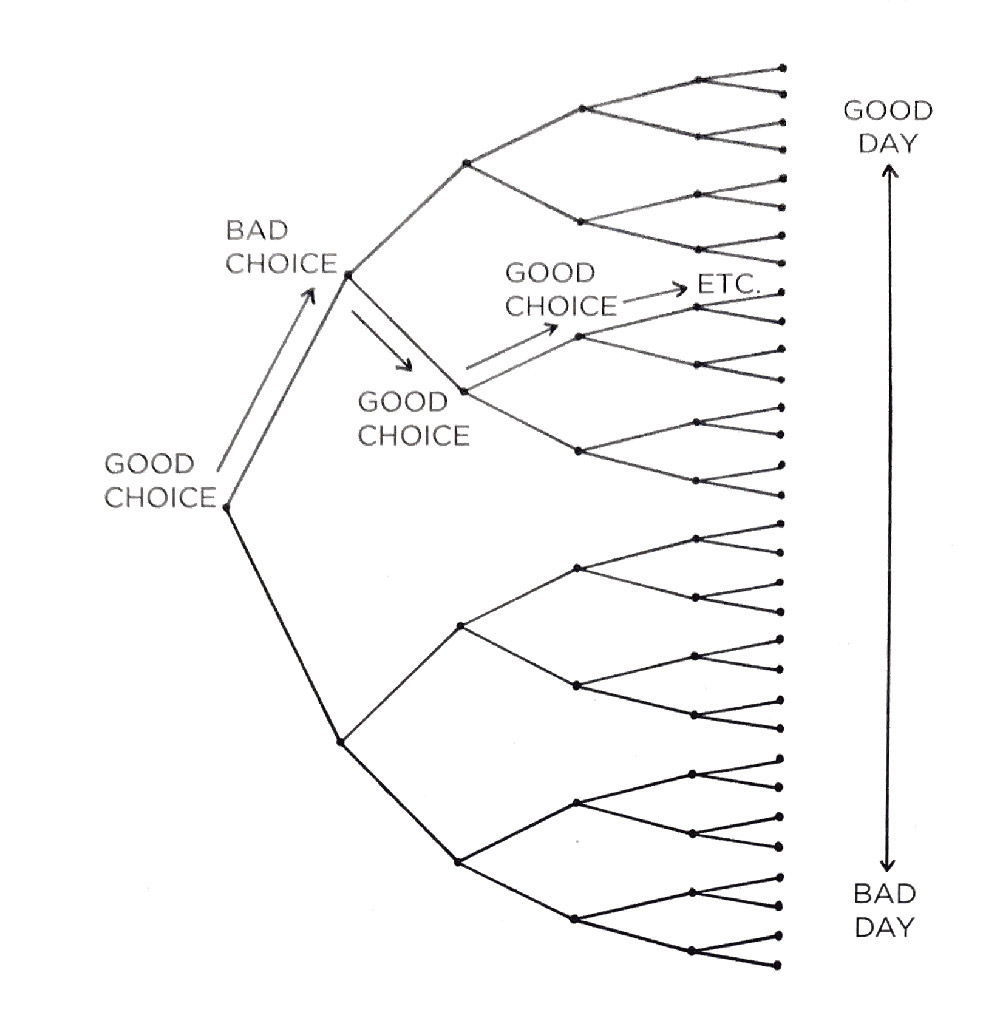
The decisions you make first thing in the morning will form the foundation for your entire day.
Start your day with basic tasks like making your bed, brushing your teeth, showering and getting dressed into proper clothes. (even if you’re working from home)
It will put you in a productive mindset that “snowballs” throughout your day. Each tiny win will lead to a slightly bigger win and so on, and so on… until you look back at the end of the day satisfied with what you’ve accomplished.
As a web designer, I work from home a lot. For the longest time, I underestimated how important a productive start to the day really is.
I loved rolling out of bed and hopping right into my desk chair, ready to work in my comfy sweats and hoodie.
But, I often found it more challenging to focus on the work at hand. My brain was being directly influenced by the laziness of my outward appearance.
And this would sometimes cause me to skip basic daily necessities. Simple tasks like making my bed and brushing my teeth became an inconvenient chore. (don’t judge me)
Now, I ensure I always follow a simple daily routine that consists of:
- Make bed
- Brush teeth
- Get dressed (into “real” clothes)
- Make coffee
- Reading and meditation
- Practice Spanish
One habit naturally leads into the next.
I’ve found that as long as my mornings start with these core necessities, it sets me up for a more focused and productive day.
Figure out which habits are most important to you, and start every day with them.
Remove temptations and distractions
“Out of sight, out of mind.” – Everyone, everywhere
Our thoughts lead to actions. And our environments are full of triggers that activate thoughts.
These triggers can be extremely subtle. They often take place in our unconscious mind.
In 1970’s Amsterdam, during the peak of an energy crisis, government authorities started paying close attention to energy usage. In one neighborhood, they discovered that some homeowners were using 30% less energy than others.
All of the homes were nearly identical in every way… except for one important detail.
In the homes that were saving 30% on energy costs, the electrical meter was located in the primary hallway on the main floor. In all the other homes? Where they were consuming more energy? The electrical meter was tucked away in the basement.
When their energy use was prominently displayed and easy to track, people changed their behavior.
This is the power of adding and removing triggers from our environment.
Remove negative triggers from your environment, and you won’t have to work as hard to focus.
You can do things like:
- Keep your Xbox controller inside your coffee table instead of resting it on top
- Place your phone in another room
- Hide your TV remote behind your couch
- Stick junk food in a hard-to-reach cupboard
These may sound too small to make any significant difference. They’re not.
Small but consistent effort leads to big improvements.
Insert positive triggers
Just as removing triggers from your environment can keep you from getting easily distracted, adding triggers can help you stay more focused.
Positive triggers will activate the mindset you need to accomplish the tasks at hand.
These positive triggers can include:
- Placing your library book on your bed
- Leaving your journal in front of your computer
- Keeping your workout clothes and running shoes right by your front door
- Having a bowl of fruit on your kitchen counter
Inserting these positive triggers into your environment will make it easier to activate healthy neural pathways.
Pathways that will naturally lead to better focus and concentration.
Move to another location
“Variety is the spice of life.” – Patrick, drinking a Bourbon-Aged Coffee Stout
Sometimes we need to go a bit further than optimizing our own environment.
If you’re finding it difficult to concentrate in your current environment, change it completely. Move to another location.
As I mentioned, I work from home a lot. Some days I find myself going stir crazy.
On those days, I’ll move to another location to get myself out of the rut. Places like:
- Coffee shops
- Pubs
- Libraries
- A friend’s house
- My fav local Thai restaurant (RIP Sticky Rice ????)
I can’t tell you how many times my creative spark was reignited simply by changing my surroundings.
Feed your brain’s craving for variety. It’s a healthy craving.
Use music/sound effectively
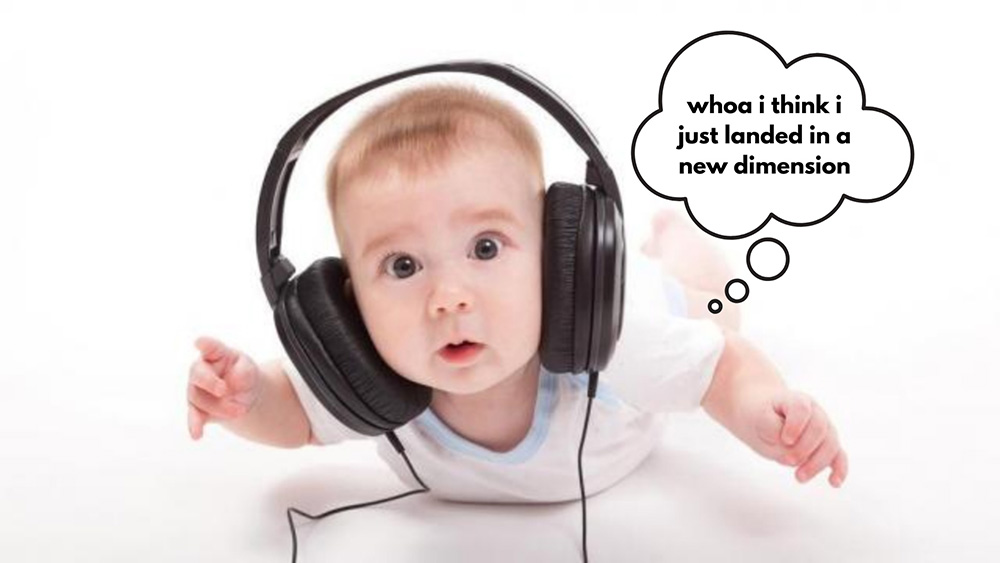
Music is universal. No matter your background, skin color, nationality, whatever… you enjoy listening to music. Because you’re human.
Music has also been proven to directly affect our mental state.
We’ve all created Spotify playlists to fit our various moods. The workout playlist, the break up playlist, the road trip playlist… the Somber and Feeling Things playlist. (don’t judge me)
Do you have a focus playlist?
Certain types of music have been shown to enhance focus and concentration and trigger a “flow state” in your mind.
Here are some of the sounds I like to listen to when trying to focus on my work:
- Brain.fm
- Interstellar soundtrack – Hans Zimmer
- Divinity – Porter Robinson
- Love, Death, Mortality – The Glitch Mob
- A random Spotify Focus playlist
Learn a foreign language
This might sound weird at first, but there’s gotta be something to it.
Learning a foreign language is difficult. It takes a great deal of persistence, patience and consistency.
Which may be why it seems to fundamentally change how you learn things.
Since I started learning Spanish, I noticed my learning habits have gradually improved over time. The approach I take to learning has changed.
I now find it much easier to focus and concentrate on everything in general.
Admittedly, the evidence around this is pretty anecdotal. And I’m not even sure if I can put it into words.
But I know how I feel K?? And I know applying myself to learning a foreign language has made me a more focused individual all around.
Here are some tools I use to learn a foreign language:
If you want some specific suggestions on Spanish YouTube channels and podcasts, hit me up: [email protected].
Team up with an accountability partner
You and a friend can commit to helping each other improve by creating an accountability system.
We touched on this a bit earlier with the website blocking.
There are a lot of different ways to establish an accountability partner. Here’s one way to create an accountability system with a friend:
- Choose a friend who wants to achieve similar goals as you.
- Tell them what goal you want to accomplish, or which habit you want to start. Be specific!
- Keep each other accountable and push to accomplish that goal together
- Establish rewards/punishments for succeeding/failing
Another method of accountability is to go public.
Write blogs, make videos and post on social media about what you want to accomplish. Your public followers will be sure to keep you accountable.
Just be sure to brace yourself for the comment section…
Make reading a daily habit
I’ve talked about the value of the simple act of reading over and over.
In a time where we are constantly bombarded with unnecessary information, overwhelming our thoughts and inflating our anxiety, many are preaching the importance of being “more mindful“.
These people often tout the benefits of practices like yoga, meditation and intentional breathing. (yes, that’s a thing)
The common thread among them seems to be the ability to “ground” yourself. To recenter and focus your mind on what’s most important. To quiet your anxious thoughts and solidify your scrambled brain.
Honestly, reading does all of those things. And it’s way easier to get into.
If you can train your brain to sit down and do nothing but read for 1 hour, you’ll feel these positive effects. And more.
If you hate reading, like I did, start with reading just 1 page a day.
Once that gets easy, do 2 pages.
Then, 3.
Then, 4.
No amount of reading is too small. Whatever it takes just to get started on the journey of making it a habit.
Before you know it, you’ll be craving your 1-2 hour daily reading sessions.
Be mindful of…
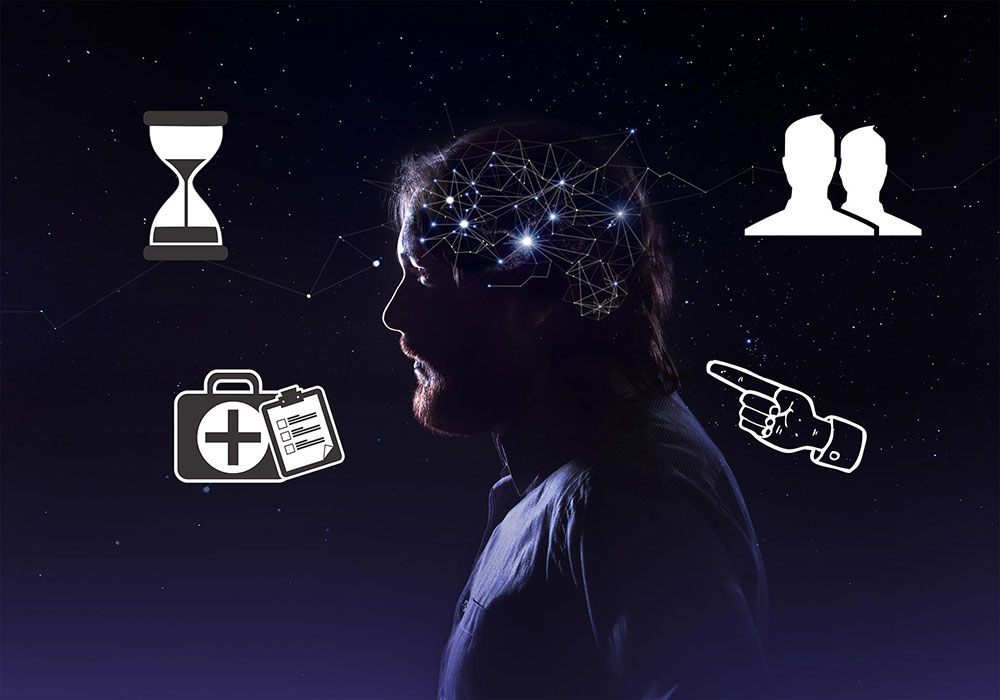
Speaking of being “more mindful”, here are some ways many of us neglect to do so.
Your time
How do you spend your most valuable resource every day?
Take a few weeks and track your daily habits. Record how much time you spend doing anything and everything.
I guarantee you’ll be surprised by how much time you waste in a day.
But, as we discussed before, don’t just tally the amount of hours spent engaged in an activity, start to analyze how you feel afterwords.
This will really help you determine if you’re spending your time on activities that are building you up or tearing you down.
Your association
There’s a popular philosophy on choosing your associations wisely.
“You are the average of the five people you spend the most time with.” – Popular Philosophy
You have seen the effects of this in your own life. You just may not realize it.
And that’s what makes this so powerful. For good, or bad.
The effect your associations have on you is subtle. Gradual. It will shape and mold your daily habits.
If your closest friends are into:
- Netflix
- Video games
- Clubbing
- Drinking
then you will be as well.
But the power of associations can be used as a force for good too.
If your closest friends are into:
- Fitness
- Reading
- Playing music
- Building an online business
…then you will be as well.
So, really, it comes down to one simple formula.
Determine what kind of person you want to be, then spend time with others who share those goals and values.
Oh, and by the way…
This 100% applies to social media and entertainment as well.
The stuff you read, watch and listen to is considered association. You’re giving whoever made this content a free pass into your mind. Make sure they are worthy of it.
Your health
A healthy mind and body will make it far easier to focus and concentrate.
Your daily output directly correlates with your daily input.
If you feed your body garbage, your output will be garbage.
If you feed your mind emptiness, your output will be empty.
Simple as that.
Eat healthy. Exercise regularly.
Read and watch healthy. Exercise your brain regularly.
Your accountability
And, finally, be mindful of your accountability.
It’s far too easy to blame external sources for our own failings. Especially if it’s justified.
The beauty of personal accountability is that you are always in full control. You can determine how you respond to situations. No matter how difficult they may seem.
There’s no doubt that you have your own unique challenges. And it’s even likely that you’ve been the victim of circumstances that were completely outside your control. There is a lot of injustice in this world.
But nothing can be gained from a victim mentality. If you dwell on all of the ways this world has been unjust to you, it will only bring more pain and frustration.
If you work to develop a mindset of personal accountability, you will find it easier to overcome these injustices when they come along. You will feel more in control of yourself and your own life.
“Everyone thinks of changing the world, but no one thinks about changing himself.” – Leo Tolstoy (Russian Author)
Don’t dwell on what you can’t control. Focus on what you can.
And decide how you will respond accordingly.
Focus and Concentration Guide Review
To summarize, here’s your guide to improving your focus and concentration:
- Take a step back
- Identify your distractions, temptations and time-suckers
- Monitor your habits and track how you’re spending your time
- Stop and think about how you feel after engaging in an activity
- Add friction to bad habits
- Block websites on your computer
- Simplify your phone
- Delete unnecessary apps
- Add friction to must-have apps
- Block notifications
- Use parental control features
- Remove friction from good habits
- Optimize your environment
- Keep it clean and tidy
- Remove temptations
- Insert positive triggers
- Move to another location
- Use music/sound effectively
- Learn a foreign language
- Team up with an accountability partner
- Read daily
- Optimize your environment
- Be mindful of…
- Your time
- Your association
- Your health
- Your accountability
I hope you find at least some of it useful! I know I have.
